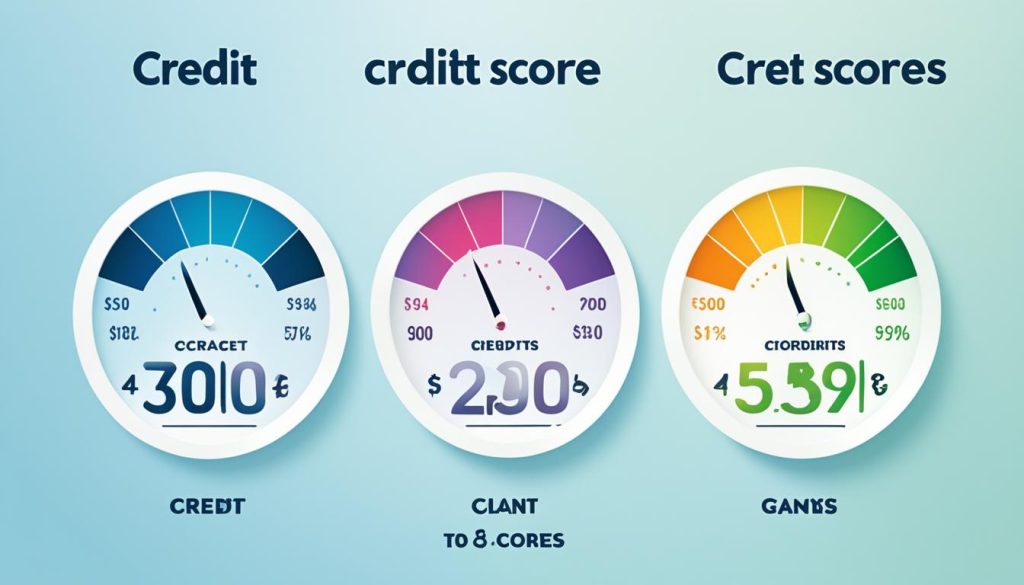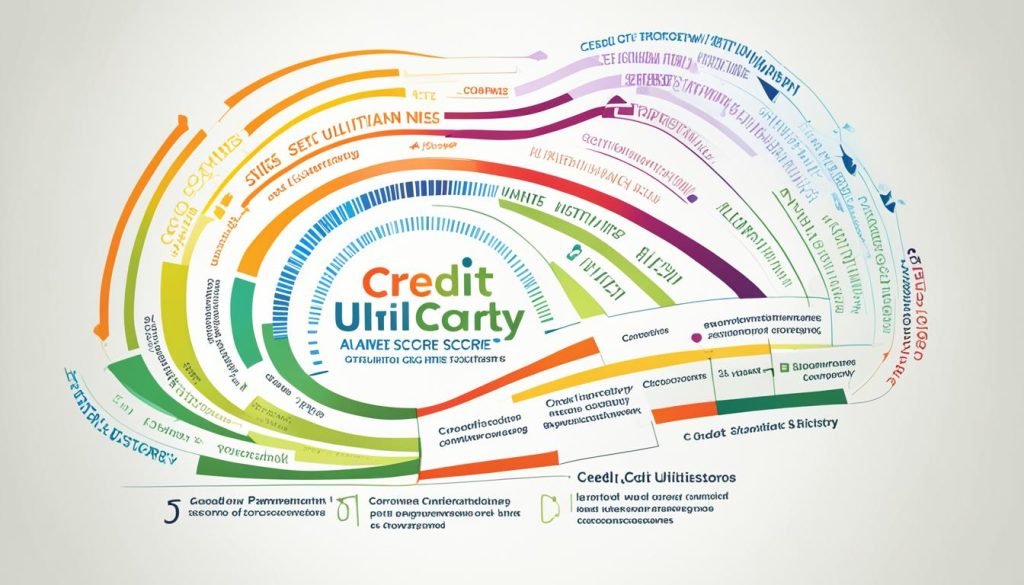Your credit score plays a crucial role in shaping your financial future. Lenders rely on your creditworthiness to determine your ability to repay debts and offer you favorable terms. Having a serious minimum credit score is essential for securing loans and credit cards from Earnest, a leading lender. By understanding the credit requirements, qualifying credit score, and loan eligibility, you can unlock financial opportunities and navigate the loan application process with ease.
What is a Credit Score and How Does it Impact You?
A credit score is a three-digit numerical representation of your creditworthiness. It indicates how likely you are to repay your debts on time. When you apply for a loan or a credit card from Earnest, your credit score is used by lenders to evaluate your creditworthiness.
A higher credit score increases your chances of getting approved for loans and credit cards, as it demonstrates your ability to manage credit responsibly. Lenders are more likely to approve your loan applications and credit card requests if you have a good credit score. This means you can access the funds you need to achieve your financial goals and fulfill your aspirations.
Moreover, a higher credit score can also help you secure lower interest rates, reducing the overall cost of borrowing. With lower interest rates, more of your payments go towards the principal balance rather than interest, allowing you to pay off your loans faster. This not only saves you money in the long run but also helps you build a strong financial foundation.
Additionally, having a higher credit score may result in higher credit limits. This means that you can have greater access to credit when you need it. Whether it’s for emergencies, unexpected expenses, or reaching important milestones, having a higher credit limit provides you with the flexibility to manage your finances efficiently.
Understanding the significance of your credit score is essential in today’s financial landscape. It not only determines your eligibility for loans and credit cards but also affects the interest rates you receive and the amount of credit you can access. By maintaining a good credit score, you can unlock a world of financial opportunities and make the most of your financial journey.
Understanding the Factors that Affect Your Credit Score
When it comes to your credit score, several key factors play a significant role in determining your creditworthiness and financial future. Understanding these factors can help you make informed decisions to improve and maintain a healthy credit score.
Payment History
Your payment history is one of the most crucial aspects of your credit score. It reflects your track record in repaying debts on time. Consistently making timely payments positively impacts your credit score, demonstrating your reliability and responsibility.
Credit Utilization
Credit utilization refers to the amount of credit you’re using compared to your total available credit. Keeping your credit utilization low is essential, as high utilization can negatively impact your credit score. Aim to use only a small percentage of your available credit to show responsible credit management.
Length of Credit History
The length of your credit history is another factor considered when calculating your credit score. Generally, a longer credit history indicates a greater level of confidence for lenders, as it provides a more comprehensive overview of your financial habits and decision-making.
New Credit Accounts
Opening new credit accounts can impact your credit score. Lenders may view multiple new credit accounts within a short period as a potential risk, as it may suggest financial instability. It’s recommended to be cautious when applying for new credit and only do so when necessary.
Credit Mix
Your credit mix refers to the variety of credit accounts you have, including credit cards, mortgages, personal loans, and more. Having a diverse mix of credit types can demonstrate your ability to handle different financial responsibilities, positively influencing your credit score.
Remember, a positive payment history, responsible credit utilization, a longer credit history, judicious management of new credit accounts, and a healthy credit mix can contribute to an improved credit score and better financial opportunities.
To visualize how these factors interplay and affect your credit score, take a look at the image below:
https://www.youtube.com/watch?v=tYW1Wul67PE
By understanding the importance of payment history, credit utilization, length of credit history, new credit accounts, and credit mix, you can make informed decisions to build and maintain a strong credit profile, unlocking financial opportunities along the way.
Credit Score Ranges and Their Significance
Your credit score is a numerical representation of your creditworthiness, and it falls into different ranges, each with its own significance. Understanding these ranges and where your credit score falls can help you gauge your creditworthiness and work towards improving it. Let’s explore the different credit score ranges and their meanings:
Excellent Credit (800-850)
An excellent credit score indicates exceptional creditworthiness and opens doors to the best financial opportunities. With an excellent credit score, you’re likely to qualify for the most competitive interest rates and loan terms. Lenders perceive you as a highly trustworthy borrower, and this score reflects your responsible credit management.
Very Good Credit (740-799)
A very good credit score still showcases a strong credit history and provides access to favorable terms. Although it may not be in the excellent range, a very good credit score places you above average and demonstrates responsible credit management. Lenders are likely to view you as a reliable borrower, giving you access to favorable interest rates and loan options.
Good Credit (670-739)
A good credit score reflects responsible credit management and demonstrates that you consistently meet your financial obligations. It may not be in the highest ranges, but it still indicates a creditworthy profile. With a good credit score, you may qualify for competitive loan terms and interest rates, although some lenders may place additional scrutiny on your application.
Fair Credit (580-669)
A fair credit score suggests some credit challenges but is not considered poor. It may indicate instances of missed payments or credit issues. While you may still be eligible for certain loan products, terms and interest rates may not be as favorable as those offered to borrowers with higher credit scores. It’s important to continue working towards improving your creditworthiness.
Poor Credit (300-579)
A poor credit score reflects a history of missed payments, defaults, or significant credit challenges. It indicates a higher risk to lenders, making it more challenging to secure loans and credit products. Rebuilding your credit is crucial for improving your financial situation and accessing better loan options in the future.
Understanding the significance of different credit score ranges empowers you to take control of your financial future. Knowing where you currently stand can help you identify areas for improvement and work toward building a better credit profile. Remember, your credit score is not set in stone, and with time and responsible credit management, you can improve your creditworthiness.

Tips for Building and Improving Your Credit Score
Building and improving your credit score is a gradual process that requires responsible financial habits. By implementing these tips, you can take control of your credit and work towards a healthier credit score:
- Pay bills on time: One of the most important factors in determining your credit score is your payment history. Make it a priority to pay your bills on time, as missed or late payments can have a negative impact on your credit.
- Maintain low credit utilization: Keeping your credit card balances below 30% of your credit limit is crucial for maintaining a healthy credit utilization ratio. High credit utilization can indicate financial risk and may negatively affect your credit score.
- Monitor your credit report: Regularly reviewing your credit report allows you to identify any errors or inaccuracies that may be dragging your score down. If you spot any discrepancies, take immediate action to dispute and rectify them.
- Limit new credit applications: Each time you apply for new credit, it triggers a hard inquiry on your credit report. These inquiries can slightly lower your credit score. Only apply for credit when necessary, and avoid opening multiple new accounts within a short period of time.
By following these tips and adopting responsible financial habits, you can improve your credit score over time. Remember, building credit is a journey, and patience and consistency are key. Stay committed to these practices, and you’ll be on your way to a stronger credit profile.

Conclusion
Your credit score plays a crucial role in shaping your financial future. It determines your eligibility for loans, credit cards, and other financial opportunities. By understanding the importance of maintaining a serious minimum credit score and the factors that affect it, you can navigate the loan application process with ease and unlock a world of financial possibilities.
A good credit score not only improves your chances of getting approved for loans but also allows you to access better loan terms, lower interest rates, and higher credit limits. It demonstrates your creditworthiness and showcases your responsible financial habits. By following tips for building and improving your credit score, such as paying bills on time, maintaining a low credit utilization ratio, and monitoring your credit report, you can enhance your creditworthiness and secure a brighter financial future.
Remember, your credit score is a reflection of your financial responsibility and credibility. It is the key to unlocking financial opportunities and achieving your goals. Take control of your creditworthiness today by understanding the importance of a serious minimum credit score and taking steps to improve it. With a strong credit score, you can confidently pursue your financial aspirations and create a more secure future for yourself.
FAQ
What is a credit score and why is it important?
How does my credit score impact loan approvals and credit card applications?
What factors affect my credit score?
What are the different credit score ranges and what do they mean?
What are some tips for building and improving my credit score?
Why is a serious minimum credit score important?




No comments! Be the first commenter?